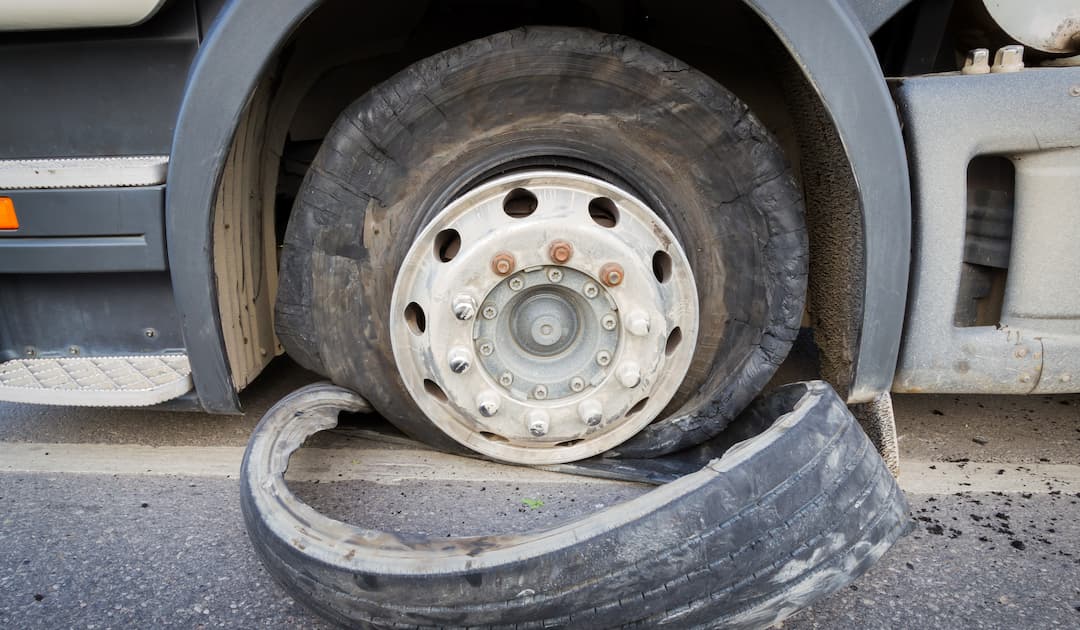Introduction
Navigating the highways of Florida, one might frequently hear or personally lament, “an 18-wheeler tire blowout hit my car.” It underscores the lurking dangers posed by colossal commercial trucks, especially 18-wheelers. These mammoth vehicles, when not properly maintained, can become the harbingers of dire accidents, often resulting from tire blowouts. When the aftermath of such negligence transforms into a distressing reality of an “18-wheeler tire blowout hit my car” scenario, understanding the underlying causes and the available legal recourses becomes paramount. As an experienced Truck Accident Lawyer, I’ve not only seen but also battled in the trenches for victims echoing that very sentiment.
The Alarming Reality of 18-Wheeler Tire Blowouts in Florida
In 2015 alone, Florida’s highways bore witness to 370,000 vehicle-related incidents. Disturbingly, many motorists found themselves saying, “an 18-wheeler tire blowout hit my car.” The Florida Department of Highway Safety and Motor Vehicles highlighted the role of commercial trucks, particularly 18-wheelers, in these accidents. Many of these incidents had tragic consequences, primarily due to 18-wheeler tire blowouts. As an experienced Personal Injury Attorney, it’s become increasingly common to hear victims recount how an “18-wheeler tire blowout hit my car.”
The Underlying Causes of Truck Tire Blowouts When an 18-Wheeler Tire Blowout Hits Your Car
Delving into the reasons, the main culprits are often glaringly obvious. “An 18-wheeler tire blowout hit my car” is frequently the aftermath of negligence by truck drivers or commercial truck owners. Owning and operating a commercial vehicle requires ensuring its safety on the highways.
Potential disasters lurk: overburdened trucks or the number one cause of tire blowouts, underinflated tires. When overlooked, they lead to the dreaded phrase, “an 18-wheeler tire blowout hit my car.” Routine inspections can prevent these. But tires with worn-out treads or those deteriorating with age result in the terrifying scenario where an “18-wheeler tire blowout hits my car.”
Primary Causes of 18-Wheeler Tire Blowouts in Florida
To provide a clearer picture, let’s examine the primary causes of 18-wheeler tire blowouts in Florida and the preventive measures that can be taken.
| Cause | Description | Prevention Measures |
|---|---|---|
| Underinflated Tires | Tires without adequate air pressure can overheat and blow out. | Regularly check tire pressure and refill as needed. |
| Overloaded Trucks | Excess weight puts additional strain on the tires, increasing blowout risk. | Ensure trucks do not exceed their maximum weight limit. |
| Worn-out Treads | Tires with reduced tread depth lose their grip and are more susceptible to punctures. | Replace tires when tread depth reaches a critical low. |
| Deteriorating Tires due to Age | Rubber breaks down over time, making older tires more prone to blowouts. | Set a tire age limit and replace older tires, even if they look okay. |
| Negligence in Maintenance | Ignoring routine inspections can overlook potential tire issues. | Adhere to a regular maintenance and inspection schedule. |
| External Road Hazards | Sharp objects, potholes, or other road hazards can damage tires, leading to potential blowouts. | Drive cautiously, avoiding obvious road hazards when possible. |
Legal Recourse and Compensation After an 18-Wheeler Tire Blowout Hits Your Car
Being a victim, especially when saying “an 18-wheeler tire blowout hit my car,” requires immediate action. Know your legal rights. Victims can seek compensation from the responsible driver or truck owner. Glaring negligence might warrant punitive damages.
The Imperative of Legal Counsel When an 18-Wheeler Tire Blowout Hits Your Car
It’s a nightmare to think, “an 18-wheeler tire blowout hit my car.” When it does, having expert legal assistance is essential. Florida’s LaBovick Law Group, with its team of specialized lawyers, champions such causes. For those grappling with the aftermath or seeking advice on blowouts, the initial consultation is free.
Conclusion
The devastating repercussions of 18-wheeler tire blowouts in Florida are not to be underestimated. With the increasing incidents on the highways, understanding the causes, legal ramifications, and the necessity of expert legal assistance is crucial for anyone who finds themselves at the receiving end of such an accident. When confronted with the potentially life-altering impact of a truck tire blowout, being informed, prepared, and backed by formidable legal representation like Florida’s LaBovick Law Group can make all the difference. Whether you’re seeking redress or simply looking for expert advice on the aftermath of such incidents, always remember that the path to justice is paved with the right knowledge and expert guidance.
Frequently Asked Questions
What are the primary reasons for truck tire blowouts?
The number one cause of tire blowouts includes underinflation, overloading, and poor tire maintenance, such as allowing tires with low tread to remain on the truck.
What actions should one take after being involved in a truck tire blowout accident?
It’s crucial to first ensure the safety of all parties involved, document the scene, and seek medical attention if required. Then, consult with a truck tire blowout attorney to understand your rights and potential compensation.
How does the age of a tire influence its susceptibility to blowouts?
Tires that are rotting due to age or have compromised integrity are more prone to blowouts, making regular inspections vital.
Are truck drivers or trucking companies liable for damages caused by a blown-out tire?
Both may be held responsible, depending on the specifics of the situation. It’s essential to engage a lawyer familiar with truck tire blowout cases to help navigate the intricacies.





